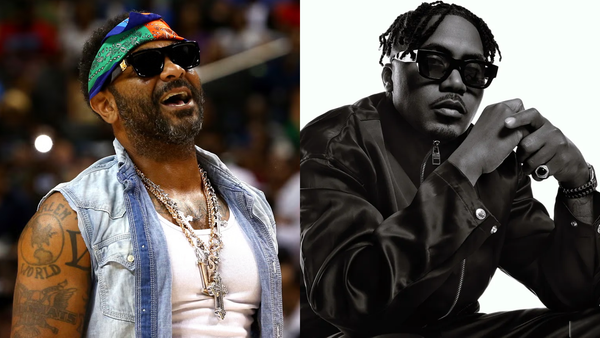Hulk Hogan is Dead. Don't Ask Black People to Grieve.
by SPJ
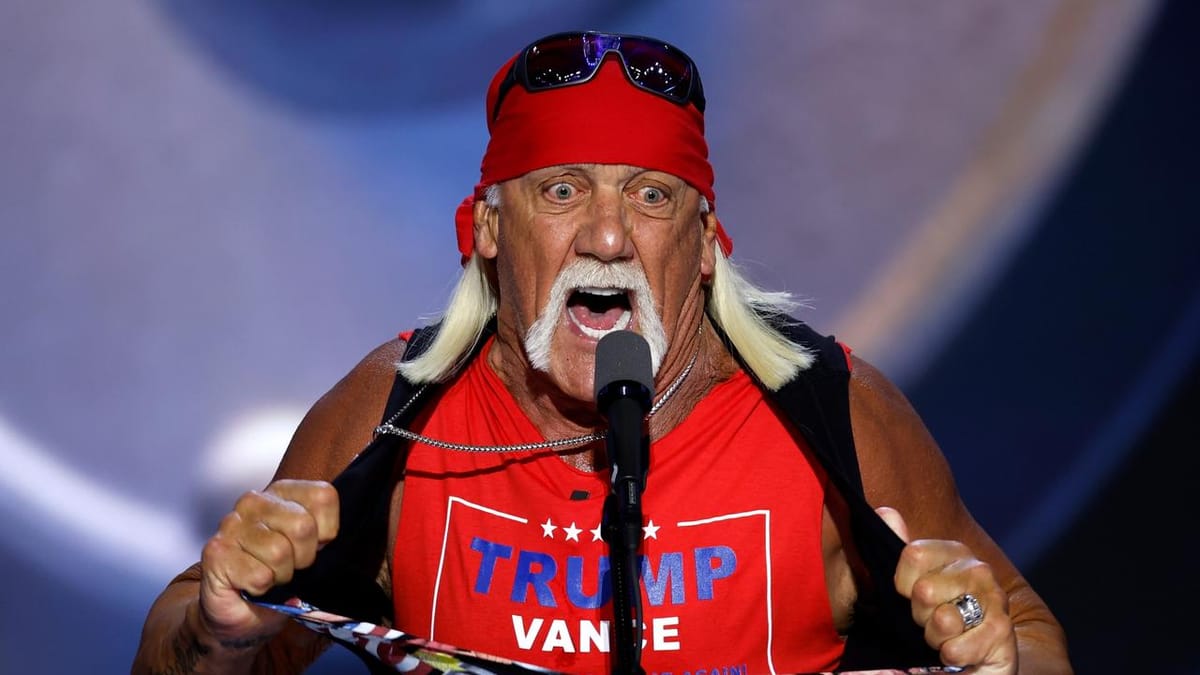
So, Hulk Hogan is dead. And before the obituaries can finish painting their saintly portraits and portrayals of a 1980s icon, and before the first chords of "Real American" fade from the tribute videos, let's get something 100% clear. A whole lot of black people are not sad. We are not mourning. And we are not obligated to explain ourselves to those who are.
But since the cycle of performative grief and feigned unity is as predictable as him winning a match with a leg drop, let's just do this. Let's discuss the legacy of Terry Bollea, a man who, for many Black people, was once a hero and then became a villain in plain sight. He is just another reminder of a reality that wrestling, and America, have never wanted to fully confront. The narrative that his outsized impact on professional wrestling somehow entitles him to personal reverence is a fiction that needs to be put to rest along with him.
This Substack is reader-supported. To receive new posts and support my work, consider becoming a free or paid subscriber.
The Receipts: A Racist Rant in Three Acts
The central thesis here isn't complicated:
Hulk Hogan, scratch that, Terry was a virulent racist, and he was only sorry he got caught. That’s not an editorial moment. It’s the truth, but more on that later. The "scene of the crime" is a set of leaked recordings from the mid-2000s, released in 2015, that stripped the red-and-yellow paint off the Hulkamania facade to reveal something ugly and rotten underneath. This isn't hearsay or a misunderstood joke. This is the man, in his own words, laying his bigotry bare.
Here are the receipts:
- On his daughter, Brooke, dating a Black man, Terry was recorded saying,"I mean, I don’t have double standards. I mean, I am a racist, to a point, fucking niggers." He continued, "I mean, I’d rather if she was going to fuck some nigger, I’d rather have her marry an 8-foot-tall nigger worth a hundred million dollars! Like a basketball player!"
- In the same rant, he lamented,"If we’re gonna fuck with niggers, let’s get a rich one!" This wasn't a slip of the tongue; it was a theme.
- As if that wasn't enough, a 2008 jailhouse phone call with his son, Nick, surfaced. In it, Terry told his son,"You and me and all the other niggers from the neighborhood…" He added that his son’s incarceration would make him a "real man" and that "God has blessed you for being exposed to this."
I purposely showed the full words to make a point. This shouldn’t be hidden, redacted, or edited. This is the evidence. It’s not ambiguous. It's a clear, unfiltered look at the man's worldview.
The Apology Tour: A Masterclass in Saying Nothing
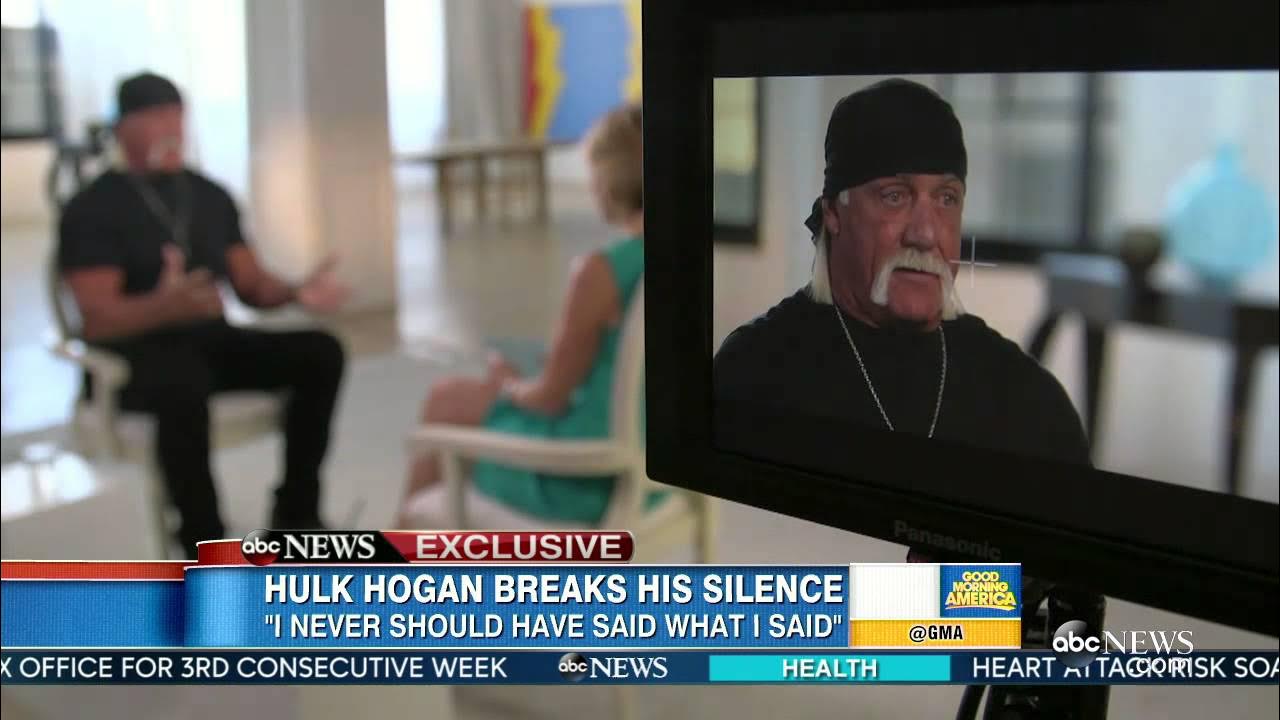
After WWE swiftly fired him and scrubbed his name from their Hall of Fame in 2015, the requisite apology tour began. In a tearful interview on Good Morning America, Terry delivered a masterclass in the art of the non-apology. He didn't apologize for his beliefs; he apologized for the embarrassment the leak caused.
His primary defense? He was a product of his environment. "I was born and raised in South Tampa, and it was a really rough neighborhood, very low-income," he explained. "And all my friends, we greeted each other saying that word." This is a laughable and deeply insulting excuse. He then pivoted to a warning for others: "I would say to all my celebrity friends: just be careful what you say." It was a stunning moment of self-preservation masquerading as contrition. He wasn't sorry for being a racist; he was sorry he got recorded.
That sentiment was doubled down on and echoed when he finally addressed the WWE locker room. His message was clear. He apologized for hurting the company. He apologized for hurting feelings. But his most sincere sentiment was to remind everyone to always remember to “think about what you are saying”. Pointing out that in today's day and age, they have to remember that “there are always cameras everywhere and they could be recorded even when they don't realize they are.”
A Locker Room Divided: When ‘Brother’ Doesn’t Mean Family
While some of his old friends rushed to his defense, the reaction from the Black wrestling community exposed the deep rift his words created.
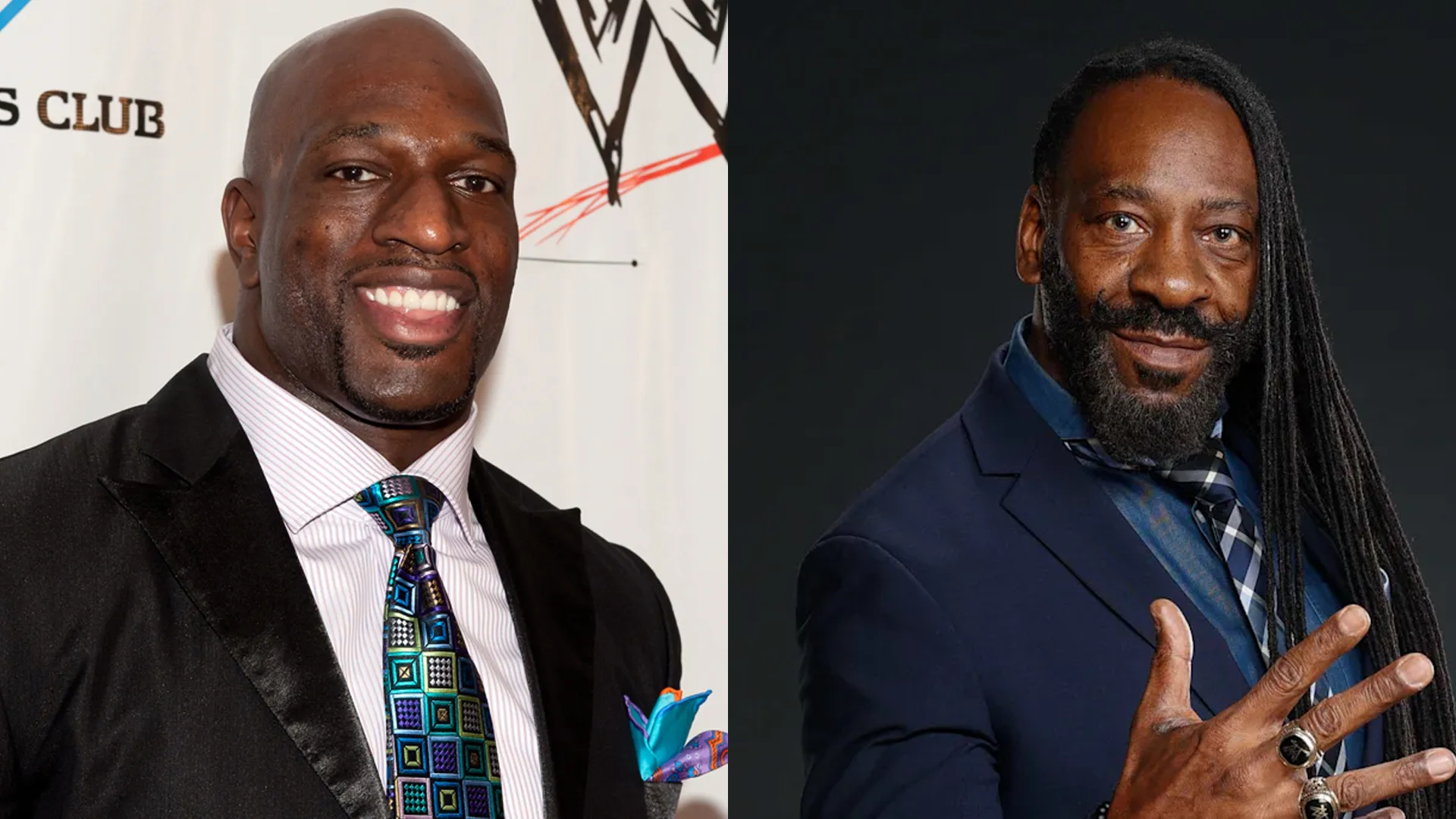
The New Day, one of WWE's most prominent Black acts, released a statement expressing their disappointment. They wrote, “We find it difficult to simply forget the hurtful and divisive words that came from his mouth.”
Titus O’Neil, known for his extensive charity work, was even more direct. In perhaps the most damning indictment of Terry’s apology, O’Neil stated that he found Terry's apology to be insincere and self-serving.
There were even those trying to offer Terry the opportunity for a mea culpa. Hall of Famer Mark Henry, in an act of profound grace, offered to take him on a tour of Black cultural sites and introduce him to community leaders to help him understand the weight of his words.
Terry declined. Because of course he did.
Let that sink in. Given a direct opportunity to learn, engage, and begin a real process of reconciliation, he refused. That refusal speaks louder than any tearful, public relations-managed interview ever could.
And then there's Booker T. In a response that surprised absolutely no one who’s been paying attention, Booker offered a muddled, forgiving perspective, at one point saying, “I know Hulk Hogan is not a racist.” It’s the kind of comment that provides cover for those who want to move on. Essentially providing Terry a get-out-of-jail-free card from a Black peer. It’s a tired role, and frankly, one that feels all too familiar.
The Business of Forgiveness: WWE's Convenient Redemption Arc
Three years after firing him, WWE reinstated Terry into its Hall of Fame in 2018. The company framed it as a story of a man who had done the work to atone for his mistakes. But what work was that? A few interviews? A backstage apology that many, including Titus O’Neil, felt was insufficient?
The truth is, WWE didn't reinstate Terry because he was redeemed. They reinstated him because "Hulk Hogan" is a valuable piece of intellectual property. It was a business decision, a cold calculation that enough time had passed for the outrage to subside and for the nostalgia to once again become profitable. It sent a clear message: in the world of professional wrestling, money and marketability will always trump morality.
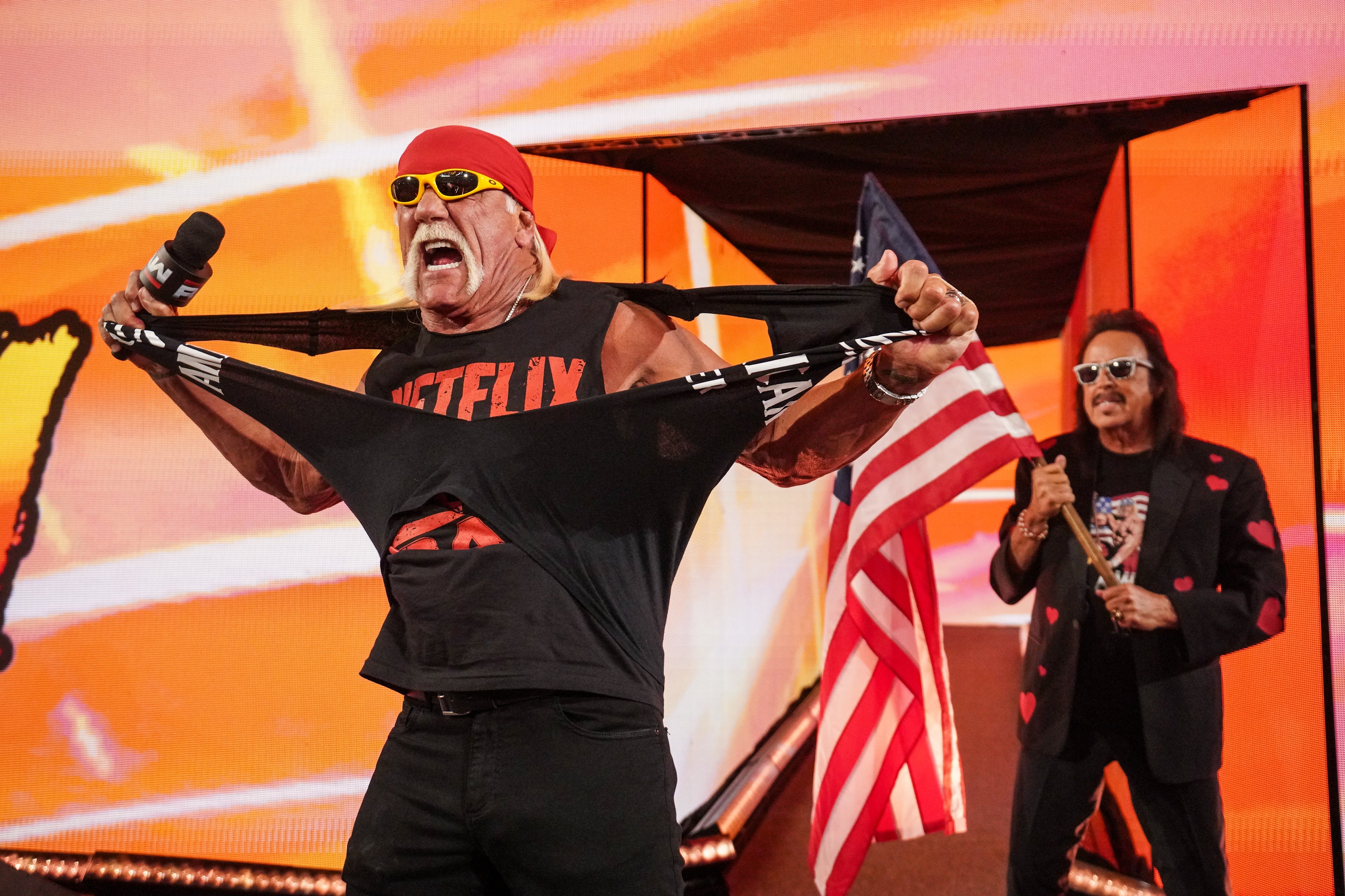
They miscalculated. They had him back to to promote some terrible beer he was now schilling on the first episode of Monday Night Raw on Netflix. His documented racist past and his recent endorsements of a certain orange commander in chief led to Terry getting booed out of the building. The WWE cancelled all future appearances.
I wouldn’t be surprised if they still give him a tribute on Smackdown tomorrow., but you never know with the way they make decisions these days.
A Legacy Forever Stained
Yes, Terry was a pop culture phenomenon. He body-slammed Andre the Giant, he told kids to say their prayers and eat their vitamins, and he helped launch wrestling into the mainstream. That is a part of his story. But it is not the whole story, and it is not the part that matters most today.
His legacy is not just one of poorly acted movies and popular catchphrases. It is one of deep-seated racism, revealed to the world and met with a half-hearted, self-serving apology. It is the legacy of a man who, when offered a genuine path toward understanding the pain he caused, turned it down.
And this isn’t an instance of him doing something a while ago that he’s learned and moved on from. After being booed for his entire segment on Raw at the beginning of this year, he was asked if he thought people were booing the character, who was a babyface and therefore was playing the heroic role, or if they were booing the person. His response? “All of the above. There were certain people who boo the character, there were certain WWE Superstars who had an opinion and had advice for me but I would like to ask the same guys when I go to New York or Chicago and the people cheer out of the rooftops, I would like to know what their advice is then and what their opinion is.” Pure delusion.
So, as the tributes roll in for the fallen "Immortal" one, don't be surprised if a significant portion of the population remains unmoved. Understand that the jokes and the displays of joy and apathy will roll out at even a potentially greater rate.
We are not obligated to mourn a man who admitted to being a racist "to a point." We are not required to separate the art from the artist when the artist's beliefs were so fundamentally dehumanizing. We have the receipts, we remember the non-apology, and we saw the refusal to learn. And we are, quite frankly, exhausted by the expectation that we should feel anything at all.
What's Your Take?
This is the kind of cultural autopsy we specialize in at the Black Culture Geekz Substack. We don't just state the facts; we explore the flawed logic behind the headlines.
- Was WWE right to reinstate Terry, or was it a purely financial decision?
- Does a public figure's iconic status mean we should overlook their personal bigotry?
- What does it say that Terry refused Mark Henry's offer to help him learn and engage with the Black community?
Let us know your unfiltered thoughts in the comments. We read everything. If you appreciate analysis that cuts through the noise and gets to the heart of the matter, subscribe to the
Black Culture Geekz Substack. You'll get our weekly deep dives, exclusive show notes, and access to a community that loves to debate the culture on a higher level.
This Substack is reader-supported. To receive new posts and support my work, consider becoming a free or paid subscriber.
